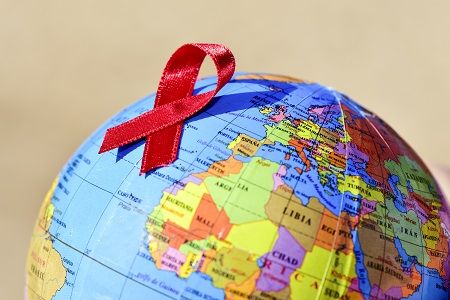Article
Three Countries Make Progress Towards the Global HIV 90-90-90 Targets
Author(s):
Incidence rates of the human immunodeficiency virus (HIV) have dramatically dropped since 2003 in three African countries.

Investigators from Columbia University and the US Centers for Disease Control and Prevention (CDC) went from house-to-house earlier this year to collect information on the human immunodeficiency virus (HIV) in three countries in Africa.
Surveys of more than 80,000 adults and children in Zimbabwe, Malawi, and Zambia indicate a sharp decline in the incidence of HIV infection, a sharp increase in the treatment of diagnosed cases and a plateau in the prevalence of the disease.
“The effects of HIV have been far-reaching. But these outcomes affirm that global, country, and US-supported HIV efforts have been successful to date, and that strong progress is being made across the entire HIV continuum of care, including excellent durability of first line treatment regimens with high adherence to medications,” Ambassador Deborah Birx, MD, US global AIDS coordinator, said in a news release.
The surveys were a part of the Population HIV Impact Assessment (PHIA) Project and collected various information from each household, including whether people have been tested for HIV, whether they had been diagnosed with the disease, whether they were receiving treatment and whether the treatment was proving effective. Preliminary results indicated key findings were documented.
Zimbabwe:
- HIV incidence rate in adults ages 15 to 64 is 0.45%
- HIV prevalence is 14.6% (16.7% women, 12.4% men)
- Of all HIV-positive people, 60.4% are virally suppressed
- 85% of those on treatment are virally suppressed
Malawi:
- HIV incidence rate in adults ages 15 to 64 is 0.37%
- HIV prevalence rate is 10.6% (12.8% women, 8.2% men)
- Of all HIV-positive people, 67.6% are virally suppressed
- 91% of those on treatment are virally suppressed
Zambia:
- HIV incidence rate in adults ages 15 to 64 is 0.66%
- HIV prevalence is 12.3% (14.9% women, 9.5% men)
- Of all HIV-positive people, 59.8% are virally suppressed
- 89% of those on treatment are virally suppressed
Those incident rates seem dramatically lower than they were in 2003, when estimates put them between 1.3% and 1.5% in all three countries. The new survey results demonstrated not only a sharp decline in the rate of disease incidence, but also the degree to which HIV treatment has become available in poor African nations since it first arrived in 2003.
“It is heartening to see the impressive viral suppression noted in the three countries among those on treatment,” said Wafaa El-Sadr, MD, global director of Columbia’s HIV-fighting organization, ICAP. “Viral suppression is critical for the well-being of people living with HIV and for preventing HIV transmission to others.”
Officials in charge of the survey effort praised the health ministers of all three nations for helping investigators to do their work and noted that officials from all three nations were eager to use survey results to inform their efforts to ameliorate the HIV epidemic.
Survey officials also argued that the information they uncovered in Zimbabwe, Malawi, and Zambia demonstrated the possibility of obtaining the 90-90-90 global HIV targets set forth by UNAIDS in 2014: diagnosis of 90% of all people with HIV, antiretroviral treatment for 90% of all diagnosed patients and effective suppression for 90% of all treated patients, in every nation in the world, by 2020.
Detailed data from the PHIA survey are available on ICAP and the news release was provided by Columbia University.
Related Coverage:
The HIV “Shock and Kill” Method Could Backfire
PrEP Stigma and Uncertainty May Be Hindering Use of the HIV Preventative
HIV Initiatives in the Works: Self-Testing, Sterile Needle Programs, Vaccine Trial





